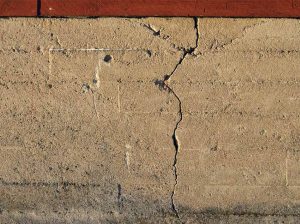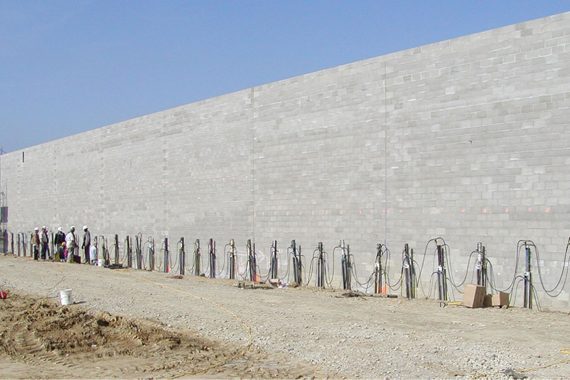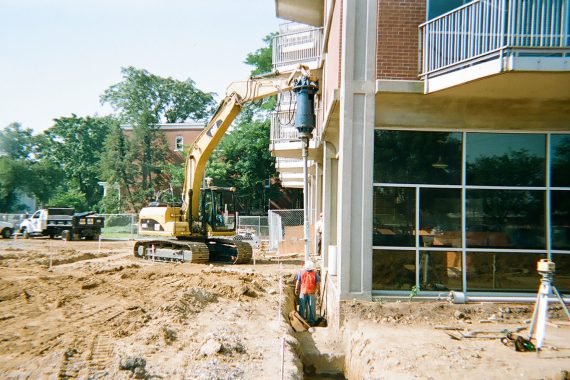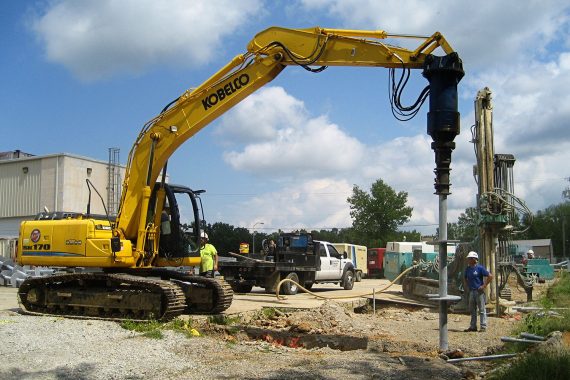When it comes to foundation and concrete crack repair, understanding the differences between epoxy and polyurethane crack injections is crucial for homeowners, property managers and construction professionals. As a trusted structural specialty service provider, The Dwyer Company, Inc. often receives questions from clients about the best methods for our crack repair needs.

In this post, we delve into the properties, applications, and effectiveness of both epoxy and polyurethane crack injections to provide a balanced comparison between the two methods.
Properties
Epoxy and polyurethane are two of the most commonly used materials for the repair of foundation cracks and concrete structures. Each material has its unique properties that make it suitable for specific situations.
-
Viscosity – Epoxy injections typically have a higher viscosity, which makes them ideal for filling and sealing wider cracks and voids. In contrast, polyurethane injections, with their lower viscosity, are better suited for penetrating smaller cracks and voids.
-
Curing time – Epoxy injections require several hours to cure completely while polyurethane injections can cure within minutes. This difference influences the project timeline.
-
Flexibility – Once cured, polyurethane injections offer greater flexibility, allowing them to accommodate slight movements and structural shifts without compromising the seal. Epoxy injections, despite being durable, may offer less flexibility.
-
Adhesion properties – Both materials exhibit strong adhesion to concrete surfaces, ensuring a secure bond and effective crack sealing. However, epoxy might provide slightly stronger adhesion in certain applications.
Applications
Choosing between epoxy and polyurethane injections depends on the crack type, structural conditions and desired outcomes.
-
Epoxy injections – These are ideal for repairing structural cracks and larger voids in concrete foundations. They are suited for stabilizing and reinforcing concrete structures subject to heavy loads or structural movement.
-
Polyurethane injections – These are best used for sealing hairline cracks and smaller voids in concrete structures. They excel in waterproofing, such as sealing active leaks and preventing water infiltration, and are flexible enough to accommodate minor structural movements.
Effectiveness
When it comes to effectiveness, both methods have their strengths.
-
Sealing cracks – Epoxy provides a strong, durable seal for larger voids, whereas polyurethane is more effective for smaller cracks and voids.
-
Water infiltration – Polyurethane injections excel in preventing water infiltration, expanding to fill voids and block pathways. While epoxy offers excellent water resistance, it may be less adaptable to structural movements.
-
Long-term performance – Both materials can offer durability and long-term performance when correctly applied, with proper surface preparation and application techniques being key to their lasting effectiveness.
Cost Comparison
The costs associated with each method vary, considering material costs, labor expenses, and overall project expenses. Epoxy injections generally have higher material costs due to the price of epoxy resins. On the other hand, polyurethane injections might incur lower labor costs due to their faster curing time, potentially offsetting the total project costs over time.
Whether you prefer epoxy or polyurethane for your foundation crack repair, The Dwyer Company, Inc. is here to ensure the longevity and stability of your property. We also offer slabjacking if you need the fastest and least invasive foundation repair method. Call (877) 399-3726 or complete our contact form for expert assistance.




